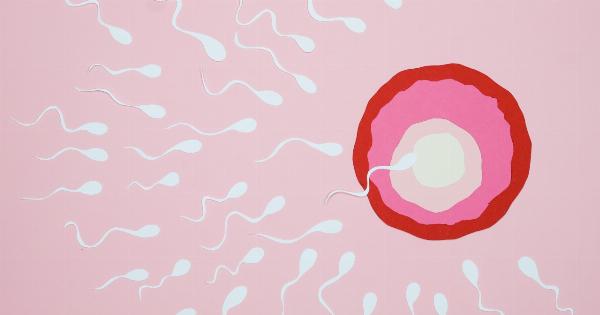Hypersensitivity and infertility are two of the most prevalent and challenging problems faced by many individuals today. Both issues can affect anyone regardless of gender, age, or race.
Addressing them is crucial as they can have a significant impact on a person’s quality of life and overall wellbeing. Fortunately, modern medicine has introduced several approaches that help individuals combat these issues effectively. In this article, we will explore the various modern approaches to addressing hypersensitivity and infertility.
Hypersensitivity
Hypersensitivity is an exaggerated response by the immune system to an allergen, which should typically be harmless. It occurs when the immune system mistakes a foreign substance for a potential threat to the body and reacts in an overactive manner.
Hypersensitivity can be classified into four types, and the treatment varies depending on the type of hypersensitivity.
Type 1 Hypersensitivity
Type 1 hypersensitivity is also known as an IgE-mediated reaction and is the most common type of hypersensitivity. It occurs when the immune system reacts to an allergen by producing IgE antibodies.
The IgE antibodies then attach to mast cells and basophils, causing the release of histamine and other chemicals, which result in allergic reactions.
Treatment for type 1 hypersensitivity includes:.
- Antihistamines – these are medications that block the effects of histamine, reducing allergic symptoms such as itching, hives, and sneezing.
- Corticosteroids – these are anti-inflammatory drugs that reduce inflammation and swelling caused by hypersensitivity.
- Allergen immunotherapy – this is a long-term treatment in which the patient is exposed to small amounts of the allergen to build tolerance and reduce hypersensitivity reactions.
Type 2 Hypersensitivity
Type 2 hypersensitivity is also known as cytotoxic hypersensitivity. It occurs when the immune system attacks and destroys cells that it perceives as foreign or damaged.
This type of hypersensitivity can be caused by drugs, infections, or autoimmune disorders.
Treatment for type 2 hypersensitivity includes:.
- Stopping the offending drug – if the hypersensitivity is caused by a drug, the patient should stop taking it immediately.
- Immunosuppressants – these are medications that suppress the immune system, reducing its attack on healthy cells and tissues.
- Plasma exchange – this is a procedure in which the patient’s blood plasma is removed and replaced with donor plasma to remove harmful antibodies.
Type 3 Hypersensitivity
Type 3 hypersensitivity is also known as immune complex-mediated hypersensitivity. It occurs when immune complexes, which are formed by the binding of antibodies to antigens, deposit in tissues and cause inflammation and damage.
Treatment for type 3 hypersensitivity includes:.
- Corticosteroids – these are anti-inflammatory drugs that reduce inflammation and swelling caused by hypersensitivity.
- Immunosuppressants – these are medications that suppress the immune system, reducing its attack on healthy cells and tissues.
- Plasma exchange – this is a procedure in which the patient’s blood plasma is removed and replaced with donor plasma to remove harmful antibodies.
Type 4 Hypersensitivity
Type 4 hypersensitivity is also known as delayed hypersensitivity. It occurs when the immune system reacts to an allergen at a delayed time, usually 24 to 72 hours after exposure. This type of hypersensitivity is common in skin reactions.
Treatment for type 4 hypersensitivity includes:.
- Topical corticosteroids – these are creams or ointments that reduce inflammation and swelling in the skin.
- Systemic corticosteroids – these are anti-inflammatory drugs that reduce inflammation and swelling caused by hypersensitivity.
- Immune-modulating drugs – these are medications that alter the immune system’s response to allergens.
Infertility
Infertility is the inability to conceive a child after one year of unprotected sexual intercourse. It affects millions of couples worldwide and can be caused by numerous factors, including genetics, lifestyle, age, and medical conditions.
Assisted Reproductive Technology
Assisted Reproductive Technology (ART) is a modern approach to treating infertility that involves laboratory procedures to facilitate conception. The most common types of ART include:.
- In vitro fertilization (IVF) – this involves fertilizing an egg outside of the body and then transferring the embryo to the uterus.
- Artificial insemination – this involves directly injecting sperm into the uterus or the fallopian tubes.
- Donor eggs or sperm – this involves using a donor’s egg or sperm to conceive a child.
Preimplantation Genetic Testing
Preimplantation Genetic Testing (PGT) is a modern approach to screening embryos for genetic abnormalities before they are transferred to the uterus.
PGT can help couples who are at risk of passing on genetic disorders or who have had multiple unsuccessful IVF cycles. The most common types of PGT include:.
- Preimplantation genetic diagnosis (PGD) – this involves testing embryos for specific genetic disorders.
- Preimplantation genetic screening (PGS) – this involves screening embryos for chromosomal abnormalities that may cause miscarriage or birth defects.
- Fertility preservation – this involves freezing eggs, sperm, or embryos for use in the future.
Alternative and Complementary Medicine
Alternative and complementary medicine are modern approaches that individuals can use to address infertility. These include:.
- Acupuncture – this involves inserting thin needles into specific points on the body to regulate the body’s energy flow.
- Naturopathic medicine – this involves using natural remedies such as herbs and supplements to improve overall health and fertility.
- Mind-body therapy – this involves using techniques such as mindfulness meditation and yoga to reduce stress and anxiety, which can affect fertility.
Conclusion
In conclusion, hypersensitivity and infertility are two major challenges facing many individuals today. Fortunately, modern medicine has introduced several approaches that help individuals combat these issues effectively.
Treating hypersensitivity depends on the type of hypersensitivity, and there are various medications and therapies available. Treating infertility can involve assisted reproductive technology, preimplantation genetic testing, and alternative and complementary medicine.
The approach used to address each issue will depend on the cause and severity of the condition, and a multidisciplinary team of healthcare professionals may be necessary.




























